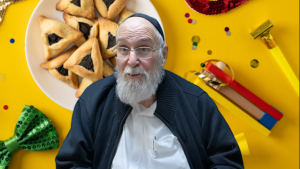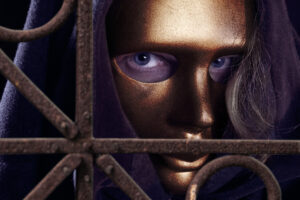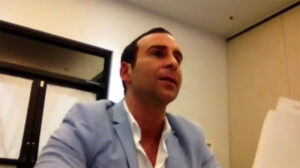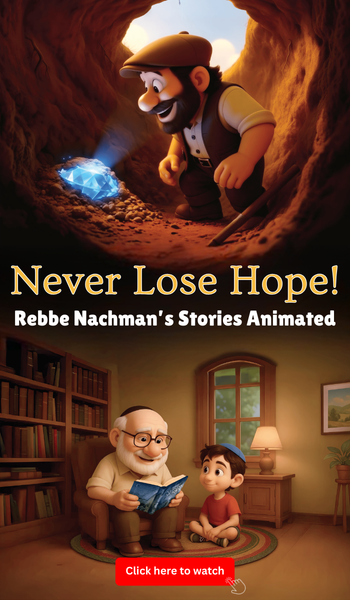Chaim Kramer on Purim
In Likutei Moharan I 56, the Rebbe tells us that every Jew has within him an aspect of “Malchut”, kingship, i.e. authority over other people. Some people only have that influence only inside their own homes, and there are others who have sway over more people.
The Rebbe warns us that we have to be careful not to use this authority for our own gain. Authority shouldn’t be our ‘slave’ to fulfill our wishes. It must be ‘free’. This is an aspect of Mordechai, to whom Chazal attribute the aspect of Mar Deror, a type of spice. Mar Deror can also refer to Mar, authority, which is Deror, free. We must see to use it only for Hashem’s sake, to use whatever influence we have to help other people come closer to Hashem.
This is a similar idea to what the Rebbe teaches in LKM II 12, that although a person has to be careful to go with simplicity and not to fall into needless sophistication, the main criteria in our actions should be to see whether Hashem is honored through them or not. If we see that Hashem will be honored, we should do it, if not, not.
The way we do this is by studying Torah and learning what does Hashem want from us in every detail of our lives.
The Rebbe teaches us that sometimes a person doesn’t see Hashem in his life; Hashem is hidden from him. There are also people who don’t even realize that Hashem is hidden from them. We have to understand that the Rebbe isn’t only referring to someone far from Torah and Mitzvos. Even someone whose entire life is taken up by Torah and Mitzvos might not see Hashem in his life- he might not even realize that Hashem is hidden from him.
Breslover Chassidim would always tell over the famous story of Reb Levi Yitzchak of Berdichev. When Reb Levi Yitzchak returned home after a year by his Rebbe, the Maggid of Mezeritch, his father-in-law asked him what he learned there. “That there is a G-d,” he replied. No one understood what he meant, doesn’t everyone know that there’s a G-d? They even called the gentile servant-girl, and asked her, is there a G-d, to which she replied, yes. Reb Levi Yitzchak explained, “She says that there is a G-d, I know.”
We are living in a generation in which there is more Torah being studied than has been for hundreds if not thousands of years. But we don’t see the real affect which Torah can have because we don’t learn Torah with the power of the Tzaddik. This means to keep in mind the Rebbe’s teachings and to study Torah with the intentions which the Rebbe taught us.

Reb Nosson said before he passed away that even though there are thousands of heretical books being printed and disseminated, one page of the Rebbe’s book will rectify everything. How is this possible? If when studying all of the other parts of Torah which we are obligated to learn we keep the Rebbe’s teachings in mind, we can accomplish so much, with the Rebbe’s power. In the story of “The Spider and the Fly”, the king says, “This page saved me.”
Although we all have to engage in the material world, we have to be able to feel Hashem always. Even when eating or doing business, etc., we still have to feel Hashem.
This is one of the foundations of Breslov. Everything in the world and everything we experience has the ability to bring us closer to Hashem. The Rebbe starts Likutei Moharan with the obligation to see the wisdom in everything in a way in which it will bring us closer to Hashem.
We all feel that materialism is preventing us from advancing in our Avodas Hashem. But the Megillah teaches us that “Mordechai” knows what’s going on. The Rebbe teaches that the greater the Tzaddik is the greater his ability to see and understand what the rest of the world is going through. He knows how hard it is for us.
Reb Levi Yitzchak Bender would say that one of the most important Torahs in Breslov is LKM I 34, where the Rebbe teaches that even if we have embarrassing things breaking our hearts, we can rectify everything by connecting to the three points of the Tzaddik, our friends, and ourselves.
The Tzaddik knows what we are going through and encourages us not to give up. Mordechai knows what’s going on, and encourages us to keep on praying and hoping for Hashem to help us.
On Purim we send Meshloach Manos, presents of food for our friends. We have to connect with our friends, to receive from them the special point which only they have. Every individual has something special which no one else has. Our job is not to teach everyone else as much as to learn from everyone.
The Seuda on Purim most people eat themselves. No matter how much we meet other people and learn from them, we have to worry about our own point, to connect to our own unique point. We all know how hard it is. In LKM I 13 the Rebbe teaches that even if we haven’t even been successful to cross over from mundane into holiness at all, the Tzaddik can elevate us. But we have to try our best.
Purim is a time that we can all be simple Jews, to beg Hashem to help us come close to Him, and Hashem helps us. “Whoever stretches out his hand…” in Hebrew is poshet yad. Rav Moshe Kramer says that we can read that as a posheter yid, a simple Jew. “…we give him”. Hashem answers us.
The Rebbe started Likutei Moharan with the idea of Chen, heavenly grace, in order that we should know that we can always turn to Hashem and ask to take from the Treasury of Unearned Gifts.
- 0 comment






















